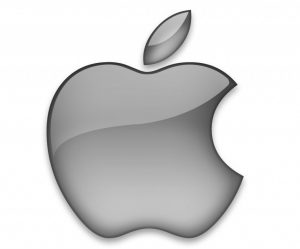 The European Commission is expected to levy a judgment against Apple (NASDAQ:AAPL) in the next few months on whether Apple’s tax dealings in Ireland violate European rules. The commission is accusing Apple of striking a sweetheart tax deal with Ireland to reduce its corporate taxes. Apple could be on the hook for as much as $19 billion, or about 17 billion euros, in taxes in Europe. Ireland denies that it gave Apple a special tax deal.
The European Commission is expected to levy a judgment against Apple (NASDAQ:AAPL) in the next few months on whether Apple’s tax dealings in Ireland violate European rules. The commission is accusing Apple of striking a sweetheart tax deal with Ireland to reduce its corporate taxes. Apple could be on the hook for as much as $19 billion, or about 17 billion euros, in taxes in Europe. Ireland denies that it gave Apple a special tax deal.
The US Treasury Department released a white paper on Wednesday, commissioned by Treasury Secretary Jack Lew, defending American companies, including Apple, Starbucks, and Amazon. The document essentially accused the European Commission of unfairly targeting American companies. The US regulator said Brussels was using a different set of criteria to judge cases involving US companies. The commission said there was “no bias against US companies” in the probes.
The Treasury also claimed that the commission’s probes into the U.S. firms “undermine” agreements on international tax law and could hurt U.S. taxpayers. Robert Stack, a Treasury Department deputy, wrote in a blog on the agency’s website, “The investigations have global implications as well for the international tax system and the G20’s agenda to combat [tax avoidance] while improving tax certainty to fuel growth and investment.” The Treasury Department said it was continuing to “consider potential responses should the commission continue its present course.”
Tax is one of the biggest policy issues for Apple. Apple has billions of dollars held offshore that it refuses to bring back to the United States unless the tax rate it is subject to is lowered. The U.S. statutory corporate rate is 35 percent. In 2013, an investigation by Congress into Apple’s tax arrangements led to CEO Tim Cook testifying before the US Senate.
The commission already has announced decisions unfavorable to other U.S. firms. Last year, a tax deal between Amazon and Luxembourg was judged to be unfair state aid for allowing the company to underpay its taxes. Fiat was judged to owe back taxes in Luxembourg, and Starbucks was judged to owe back taxes in the Netherlands.
